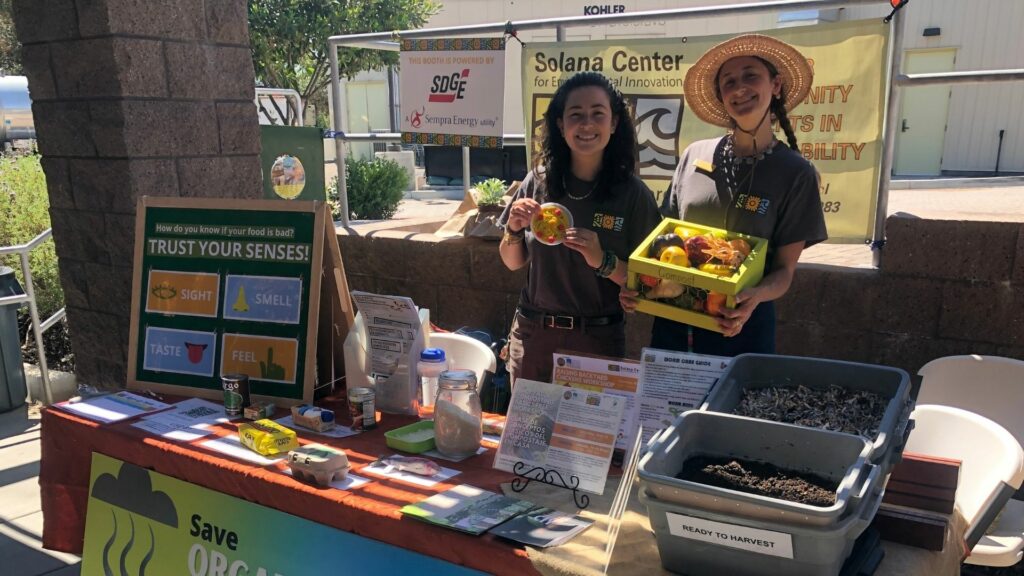Food Cycle Participant Spotlight: Sustainable Shelby

We love our Food Cycle participants! Solana Center is proud to bring the Food Cycle program to the County of San Diego. The community compost program makes it possible for Food Cycle members to divert organic materials from the landfill without having to compost it on their own. Participants simply collect their food scraps and organic materials and bring them to the Center for processing on-site to create a high-quality soil supplement.
We checked in with Food Cycle participant Shelby of @sustainable_shelby to talk about her experience composting with Food Cycle.
As part of the community compost program, Shelby visits the Center every few Saturdays a month to drop off her food cycle compost buckets. Because she lives in an apartment, Shelby is able to compost easily without a mess using bokashi bran – a method that helps ferment organic waste before it is brought back to be composted on site!
She also had some awesome “green” tips to share with our community to help you on your sustainability journey. Check them out below!
1. Mend something before buying new.
Shifting out of a disposable culture mindset into one that prioritizes fixing things first is key! If you have a pup who tends to chew through toys like me or if you get a tear in your clothes bags etc., try your hand at mending it before opting to buy a shiny new one.
PRO TIP: I’m not a seasoned seamstress by any means and I’ve found it is super easy these days to learn “how-to’s” on the internet!
2. Unplug appliances when not in use to prevent vampire power.
One of the least thought of methods to conserve energy is simply unplugging things that we aren’t currently in using. There’s a term called ‘vampire power’ or ‘standby power’ which is the energy wasted by appliances/gadgets that are just plugged in – such as cellphone chargers, computers, printers, or anything with a digital clock on it like microwaves or ovens. Unplugging things not in use can save the United States up to $3 billion a year in vampire power according to the Energy Information Administration!
PRO TIP: Power strips make it more convenient in that you can have multiple things plugged in but simply turn off a switch to shut the power off.
3. Water your plants with recycled water.
Whether you have houseplants or a whole yard you can save water by recycling water. When you are pre-rinsing your dishes (without the soap), running the shower to heat it up or rinsing produce you can have a designated vessel to save that water for watering your plants.
PRO TIP: I use rice water because growing up we were taught to rinse our rice several times before cooking it to remove sediment and debris. The water is perfectly good to use for plants!
If you enjoyed these tips, we encourage you to give Shelby a follow at @sustainable_shelby for more! If you’re interested to learn more about joining Food Cycle take a look at www.solanacenter.org/food-cycle for details or contact info@solanacenter.org if you have additional questions.
